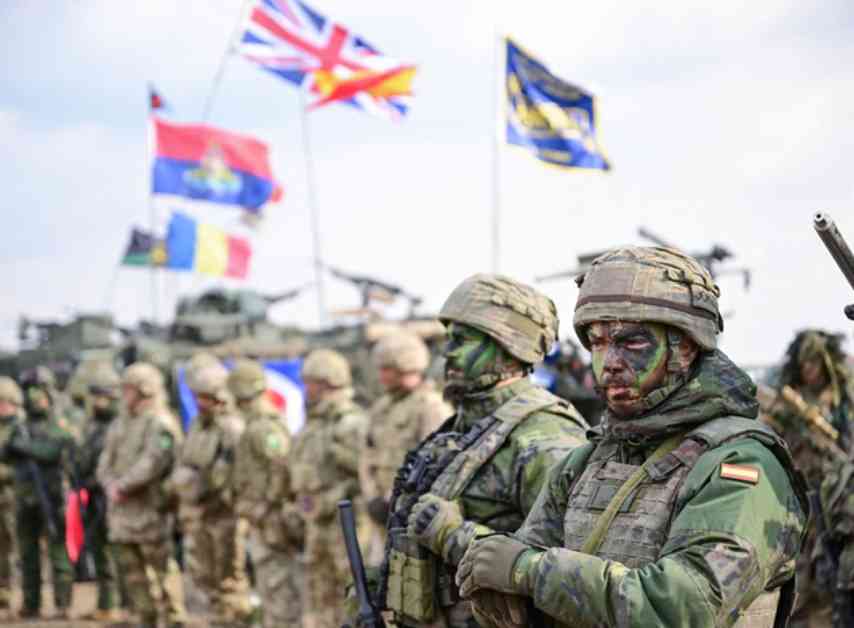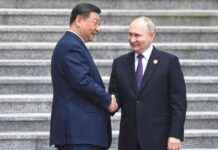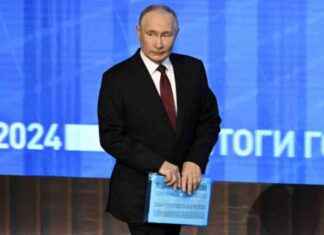Europe’s Defense Budgets Set to Skyrocket
Amidst escalating tensions across Europe and concerns over security threats, the continent is gearing up for the most extensive arms and security budget increases since World War II. A security conference scheduled for March 6 is poised to unveil crucial details regarding sector priorities and financial commitments from European nations. Reports have indicated that negotiations are still ongoing among EU member states, particularly in countries like Britain, France, and Germany, key players in this significant defense build-up.
Challenges and Collaborations in European Defense
According to a recent article by Bloomberg, European Union defense and security leaders are engaged in intense discussions to unlock hundreds of billions of euros for defense initiatives. The first glimpse of an arms build-up program is anticipated to be revealed during an emergency EU leaders’ meeting on March 6. This initiative is part of a broader continental defense strategy set to be announced later in March by European Commission Defense Commissioner Adrius Kubilius and EU Foreign Minister Kaja Kallas.
European nations have been slow to mobilize for collective defense projects since Russia’s invasion of Ukraine in 2022. However, some countries have begun collaborating on joint arms manufacturing to support Ukraine’s military efforts. Notable examples include a Czech-German-Norwegian partnership for artillery shell production, a Britain-led project focusing on seaborne drones, and joint support from Germany, Italy, France, and Norway for Ukraine’s air defense capabilities.
Political Landscape and Defense Strategy
In Germany, the largest European economy and a cornerstone of continental manufacturing, discussions have commenced between the CDU party and the SPD for a coalition government to support a €200 billion defense spending plan. The potential Chancellor, Friedrich Merz, has emphasized German defense independence and national security as primary objectives. Current Foreign Minister Annalena Baerbock has hinted at substantial EU defense spending in the upcoming months, foreseeing a €700 billion financial package for European security.
Across the English Channel, British Prime Minister Keir Starmer unveiled plans to boost the UK’s defense spending to 2.5% of GDP by 2027, with a long-term goal of reaching 3% by 2035. France has also committed to significant defense spending increases over the next seven years, echoing the broader trend of bolstering military capabilities across Europe.
As European nations ramp up their defense investments, the International Institute of Strategic Studies (IISS) has reported notable growth in European defense spending, with Germany and Poland emerging as key players in the global defense landscape. This surge in military expenditures comes against the backdrop of rising tensions and security challenges in the region.
In response to these developments, US officials, including former President Donald Trump, have criticized Europe for what they perceive as insufficient efforts to counter Russian aggression. With European defense spending on the rise and heightened focus on security cooperation, the geopolitical landscape in Europe is undergoing a significant transformation.
Despite the growing military capabilities and defense budgets, the conflict in Ukraine remains a focal point, with President Zelensky highlighting the strength of the Ukrainian army as a crucial factor in regional security. The strategic positioning of ground forces, coupled with multinational collaborations and defense initiatives, underscores the complex dynamics shaping Europe’s defense landscape.
As Europe navigates this period of heightened security challenges and evolving defense strategies, the outcomes of these defense spending commitments and collaborative efforts are poised to influence the geopolitical landscape of the continent for years to come. The investments in defense technologies, joint manufacturing ventures, and strategic partnerships signal a new chapter in European security, emphasizing the shared commitment of nations to safeguard regional stability and deter potential threats.
The future of European defense budgets is set to skyrocket, with implications that extend far beyond military capabilities, shaping the trajectory of security policies and intergovernmental relations across the continent.

















